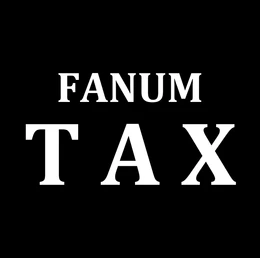In the world of internet culture, where memes and slang evolve rapidly, the term “Fanum tax” has recently gained significant traction. Originating from the Twitch streaming community, this phrase has traversed various social media platforms, becoming a staple in the lexicon of Generation Z and Generation Alpha. As a finance blogger, you might wonder how a term that started as a playful jest among friends could find relevance in a financial context. This blog post will delve into the origins, spread, and cultural significance of the “Fanum tax,” while subtly tying it to financial concepts and ensuring it fits seamlessly into the “Stories” category of your blog.
The Genesis of ‘Fanum Tax’
The term “Fanum tax” was coined by Twitch streamer Fanum, a member of the content creation group AMP, known for its humorous and engaging streams. Fanum, along with other AMP members like Kai Cenat, developed a running gag where he would take bites of his friends’ food during live streams. This act was humorously referred to as taking a “tax” on their meals, reminiscent of the way governments levy taxes on income and goods.
From Twitch to TikTok: The Viral Spread
The concept of the “Fanum tax” quickly transcended Twitch, making its way to YouTube and TikTok. Clips of Fanum’s antics were widely shared, and the term began to be used by a broader audience. By mid-2023, “Fanum tax” had become a widely recognized phrase among younger internet users. The spread was further fueled by parody videos and humorous skits, where high school students would jokingly take food from their friends while shouting “Fanum tax!”
The Cultural Impact
The “Fanum tax” phenomenon is a fascinating example of how internet culture can shape and redefine social interactions. For many young people, the term has become a way to playfully assert camaraderie and social bonds. It’s a blend of humor and mild assertion, reflecting the dynamics of peer relationships in a digital age.
Interestingly, the phrase also underscores the human tendency to create and embrace shared experiences through language. Much like traditional idioms and slang, the “Fanum tax” is a linguistic tool that binds communities together, providing a sense of belonging and mutual understanding.
Drawing Parallels to Financial Concepts
While the “Fanum tax” is fundamentally a humorous meme, it inadvertently draws parallels to real-world financial concepts. In essence, it’s a playful representation of taxation—the compulsory contribution to state revenue, levied by the government on workers’ income and business profits, or added to the cost of some goods, services, and transactions.
- Taxation and Social Contracts: Just as Fanum’s playful “tax” is accepted among friends, real-world taxes are part of the social contract between individuals and the state. Citizens pay taxes with the understanding that the funds will be used for public goods and services. Similarly, within the context of the meme, the “tax” taken by Fanum is an accepted part of the social interaction within his group.
- Economic Redistribution: The concept of taking a small portion from someone’s meal can be likened to economic redistribution, where wealth is redistributed from certain segments of society to others to promote equity and social welfare. The “Fanum tax,” in its playful form, mirrors the idea of taking a small, often insignificant portion for the benefit of another, fostering a sense of sharing and communal support.
The ‘Fanum Tax’ Song and Its Role in Meme Culture
In October 2023, the “Fanum tax” reached new heights of popularity through a parody song titled “Sticking Out Your Gyat for the Rizzler.” This song, which humorously incorporates multiple Gen Z and Gen Alpha slang terms, features the line “You’re so Fanum tax,” further embedding the phrase into internet culture. The song went viral on TikTok, amassing millions of views and further cementing the “Fanum tax” as a cultural touchstone.
The Economics of Virality
The rapid spread of the “Fanum tax” meme also provides an interesting case study in the economics of virality. Just as financial markets are driven by trends and sentiments, internet memes spread through a combination of humor, relatability, and shareability. The “Fanum tax” succeeded because it resonated with a wide audience, was easy to understand, and lent itself well to parody and adaptation—key factors in the virality of online content.
Also Read: Tax Concepts from Nation to Nation
Conclusion: The Intersection of Finance and Culture
While the “Fanum tax” might seem like a frivolous internet meme, it offers deeper insights into the ways in which cultural phenomena can reflect and parallel real-world concepts. For finance enthusiasts and professionals, understanding these cultural touchpoints can provide a unique lens through which to view economic behaviors and social interactions.
Incorporating the story of the “Fanum tax” into your finance blog not only adds a layer of relatability and engagement but also highlights the interconnectedness of finance, culture, and social behavior. By exploring these intersections, you can enrich your content and provide your readers with a broader perspective on the world of finance.
By examining the “Fanum tax” through this multifaceted lens, we can appreciate how a simple internet meme can encapsulate complex social and economic ideas. Whether you’re a finance professional, a cultural enthusiast, or simply curious about the latest trends, the “Fanum tax” offers a compelling story of humor, community, and the ever-evolving landscape of internet culture.

